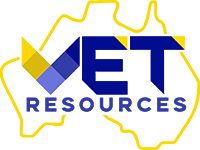Before ASQA went on their New Year holidays they published their 2nd monthly IQ edition. Here is a quick rundown of what ASQA has put in the December newsletter.
What is in the monthly IQ December Edition?
For December ASQA chose pre-enrolment and enrolment as their theme.
Since the ASQA IQ newsletter primarily focuses on providers and their improvement, this theme perfectly aligns with their goal.
They have spoken about:
- Empowering students with informed enrolment decisions.
- Matching courses to student needs through LLND testing.
- Valuing prior skills and knowledge via Recognition of Prior Learning and Credit Transfer.
- Maintaining financial responsibility and protecting prepaid fees, establishing clear written agreements with education agents.
Let’s look at them up closely.
Recognition of Prior Learning
ASQA has raised concerns about the poor quality of Recognition of Prior Learning in the VET sector.
They say the situation is particularly dangerous in industries with high risk of worker health and safety.
To counter the situation, they are tightening their monitoring activities on providers. They are using methods like sanctions to fight this concern.
(For more information on RPL click here.)
What should be your next step?
- Ensure your RPL processes are robust and comply with ASQA standards. Focus on thorough assessments and accurate skill evaluation to avoid issuing RPL for skills not genuinely possessed.
- Train your staff on best practices for conducting RPL assessments, including identifying and verifying prior learning evidence.
- Collaborate with subject matter experts in high-risk industries to ensure your RPL assessments are aligned with industry standards and safety requirements.
- Clearly document your RPL procedures and rationale for awarding RPL credits. This can be helpful in case of an ASQA audit.
- Keep up-to-date with ASQA’s latest guidelines and resources on RPL to ensure your practices remain compliant.
Language, Literacy, Numeracy and Digital Capability (LLND)
ASQA says determining a student’s LLND is a crucial step of the enrolment process. Hence training providers should pay special attention to it.
According to ASQA’s recommendation, the main goal of the LLND test is to find learners that fit best to a course.
It also says an LLND test can be developed in house or third party arrangements/ tools can be used.
The LLND tests will differ from student to student and provider to provider.
(For more information on LLND click here.)
What does it mean for your RTO?

- Tailored approach to LLND assessment: You have flexibility in how you assess LLND, allowing you to tailor the tests to your specific courses and target audience. This means you can:
- Develop in-house LLND tests: Create assessments directly aligning with your curriculum and learning outcomes.
- Utilise third-party tools and resources: Leverage existing standardised LLND tests or partner with providers specialising in LLND assessment.
- Offer multiple assessment options: Consider various methods like online quizzes, written tasks, or practical assignments to cater to diverse learning styles and abilities.
- Enhanced student guidance and support: Accurate LLND assessment helps you:
- Place students in the right courses: Ensure they enrol in programs that match their existing skills and capabilities, setting them up for success.
- Identify students needing additional support: Provide targeted learning support, personalised resources, or online tutorials for students with lower LLND levels.
- Promote lifelong learning: Encourage students to build upon their existing skills and pursue further education by identifying areas for improvement through LLND assessment.
- Compliance with national regulations and VET standards: Focusing on LLND demonstrates your commitment to quality assurance and meeting national VET expectations. This means:
- Alignment with the National VET Regulator’s (ASQA) guidelines: Implementing reliable and valid LLND assessment practices ensures compliance with regulatory requirements.
- Contribution to improving national VET outcomes: Accurate student placement and targeted support for LLND development ultimately contribute to higher overall completion rates and improved competency within the VET sector.
- Leveraging online resources and support: Several online resources and tools can aid your RTO in implementing effective LLND assessment:
- National LLND Register: Access national resources and guidance on LLND best practices through the National LLND Register.
- Online LLND assessment tools: Explore various platforms offering standardised LLND tests or online assessment tools.
- Online student support platforms: Utilise online platforms to provide targeted learning resources, personalised feedback, and online mentoring for students needing additional support.
Written agreements with education agents
Education agents are authorised personnel who guide students for admissions to different courses.
ASQA has raised concern that unregulated education agent’s unethical behaviour poses a threat to the enrolment process.
To counter the situation ASQA monitors providers under the ESOS Act and National Code.
ASQA has recommended:
- To have a written agreement with agents under Standard 4 of the National Code 2018.
- ESOS providers to monitor their education agents closely. These agents should be affiliated with ESOS providers.
- ESOS providers shouldn’t work or accept students from suspicious agents.
(For more information on written agreements click here.)
What should be your RTO’s next step?

Review current practices:
- Audit existing agent agreements: Assess whether your existing agreements with education agents comply with Standard 4 of the National Code 2018. Ensure they clearly outline responsibilities, ethical conduct expectations, and monitoring procedures.
- Evaluate agent affiliations: Identify whether your agents are affiliated with ESOS providers, as recommended by ASQA. If not, consider terminating relationships with non-affiliated agents or requiring affiliation as a condition for collaboration.
Implement improved procedures:
- Develop robust written agreements: Create standardised, comprehensive agreements that explicitly address student protection, ethical conduct, information accuracy, and financial transparency.
- Establish clear monitoring protocols: Set up an active monitoring system to track agent activities, assess student experiences, and identify potential ethical breaches. This could involve regular communication, student surveys, and data analysis.
- Implement due diligence: Perform thorough background checks on all prospective and existing agents to ensure their legitimacy and ethical track record.
- Train staff: Train your staff on identifying and reporting suspicious agent behaviour, understanding the National Code requirements, and effectively managing agent relationships.
Communicate and collaborate:
- Proactively engage with ASQA: Maintain open communication with ASQA by informing them of your steps to improve agent relations and requesting guidance or clarification when needed.
- Collaborate with other ESOS providers: Share best practices, exchange information about problematic agents, and consider joint initiatives to improve ethical standards within the sector.
- Educate students: Increase student awareness about the role of education agents, potential risks, and how to report unethical behaviour. Provide transparent information about your agent relationships and encourage students to choose reputable representatives.
Conclusion
Monthly IQ December Edition is ASQA’s effort to increase compliant providers. As an RTO or TAFE, it is an opportunity for you to understand what ASQA is concerned with and what it recommends as a solution. There are more editions in the pipeline which will be equally beneficial for your organisation’s journey.
Looking to strengthen your RTO based on ASQA’s IQ December Edition Newsletter?
Then VET Resources is your best option. We offer the best quality RPL Kits, LLN Kits and guidance on how to operate an RTO. For more information and free samples contact us here,
Frequently Asked Questions
What are third party arrangements?
Third party arrangements: Agreements between a registered VET provider and another entity for delivering training or assessment, requiring written agreements and compliance with regulatory standards.
What was the theme of the November edition?
Integrity and Quality was the theme of the November edition.
What is the significance of the National Register of VET for RTOs?
National Register of VET: Provides RTOs with access to information about registered providers, courses, and qualifications, aiding compliance and collaboration.
How can RTOs provide online student support to make the enrolment process easy?
Online student support: RTOs can offer online FAQs, chat support, virtual tours, and self-assessment tools to streamline the enrolment process, improve accessibility, and answer student questions efficiently.
Disclaimer:
The information presented on the VET Resources blog is for general guidance only. While we strive for accuracy, we cannot guarantee the completeness or timeliness of the information. VET Resources is not responsible for any errors or omissions, or for the results obtained from the use of this information. Always consult a professional for advice tailored to your circumstances.






